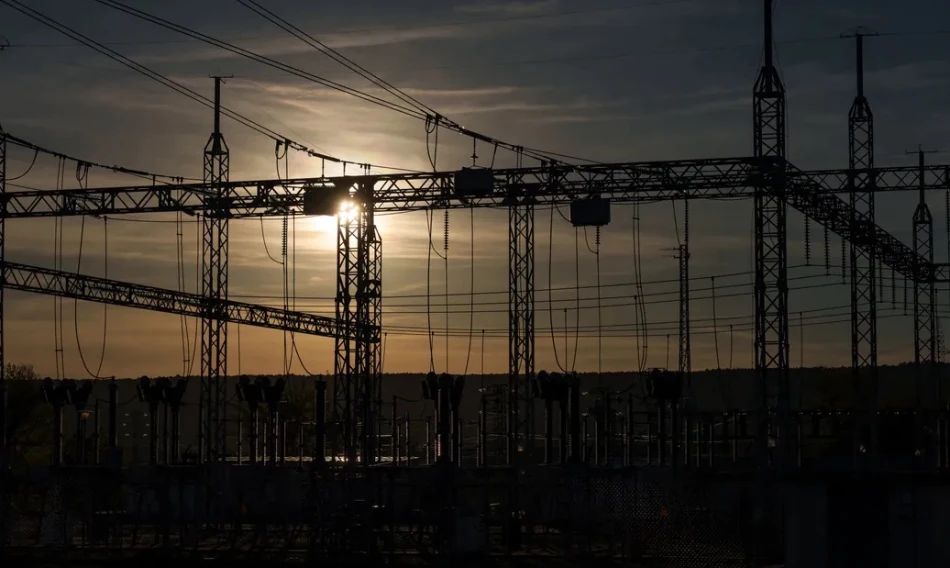
Iraq Experiences Nationwide Blackout: Power Grid Failure Disrupts Daily Life
Iraq's Fragile Power Grid Collapses Again as Single Plant Failure Triggers Nationwide Blackout
A sudden malfunction at one power plant in Iraq's Anbar province plunged the country's central and southern regions into darkness on Monday, highlighting the chronic vulnerability of Iraq's electricity infrastructure and its heavy dependence on Iranian gas imports. The cascading failure, which knocked over 6,000 megawatts offline, underscores how two decades after the 2003 invasion, Iraq still struggles to provide reliable power to its 42 million citizens.
The Domino Effect That Darkened Iraq
The blackout began when the Hamidiya power station in Anbar province unexpectedly shut down, according to sources within Iraq's Ministry of Electricity. This single point of failure triggered a catastrophic cascade across Iraq's interconnected power grid, causing frequency fluctuations that forced other generating units to automatically disconnect for safety reasons.
The ministry described the incident as a sudden and accidental loss of more than 6,000 megawatts, which accelerated the frequency rates of generating units and led to their separation from the grid. Only the semi-autonomous Kurdistan Region in the north remained unaffected, as confirmed by the head of Iraq's parliamentary energy committee.
A Grid Built on Shaky Foundations
This latest outage exposes fundamental weaknesses in Iraq's power infrastructure that have persisted for decades. Unlike resilient grids in developed nations that can isolate failures and maintain stability, Iraq's system appears to lack sufficient redundancy and protective mechanisms to prevent localized problems from becoming nationwide disasters.
The incident mirrors similar vulnerabilities seen in other developing nations, but Iraq's situation is particularly acute given its oil wealth and strategic importance. Countries like Nigeria and Pakistan have experienced comparable grid collapses, but Iraq's continued struggles stand in stark contrast to Gulf neighbors like the UAE and Saudi Arabia, which have invested heavily in grid modernization and diversification.
Iran's Energy Stranglehold Continues
Iraq's heavy reliance on Iranian natural gas imports for power generation adds another layer of complexity to its energy security challenges. This dependency has repeatedly left Iraq vulnerable to supply disruptions, whether due to technical issues, payment disputes, or geopolitical tensions.
The relationship has become increasingly strained as Iraq navigates U.S. sanctions on Iran while trying to meet its domestic energy needs. Unlike countries such as Qatar or Australia that have developed diverse energy partnerships, Iraq remains locked into a relationship that limits its strategic flexibility and economic sovereignty.
Economic Implications Beyond the Blackout
Power outages of this magnitude carry severe economic consequences for Iraq's struggling economy. Manufacturing, telecommunications, healthcare, and banking sectors all face immediate disruptions, while longer-term impacts include deterred foreign investment and reduced economic competitiveness.
For a country trying to rebuild its economy and attract international businesses, such infrastructure failures send concerning signals to potential investors. The contrast with regional competitors like Jordan and Morocco, which have made significant strides in energy reliability, becomes more pronounced with each major outage.
The Path Forward Requires Fundamental Reform
Iraq's Ministry of Electricity has promised to gradually restore disconnected units and transmission lines in the coming hours, but this reactive approach addresses symptoms rather than causes. The country needs comprehensive grid modernization, including smart grid technologies, distributed generation, and improved maintenance protocols.
More critically, Iraq must diversify its energy sources and reduce dependence on Iranian gas. This could involve accelerating renewable energy projects, developing domestic gas resources, or establishing alternative import partnerships. Countries like Egypt have successfully diversified their energy mix while maintaining grid stability, providing a potential model for Iraq to follow.
The recurring nature of Iraq's power grid failures suggests that without substantial structural reforms and investment, such blackouts will continue to plague the nation's development aspirations and quality of life for millions of citizens.
Most Viewed News

 Sara Khaled
Sara Khaled






